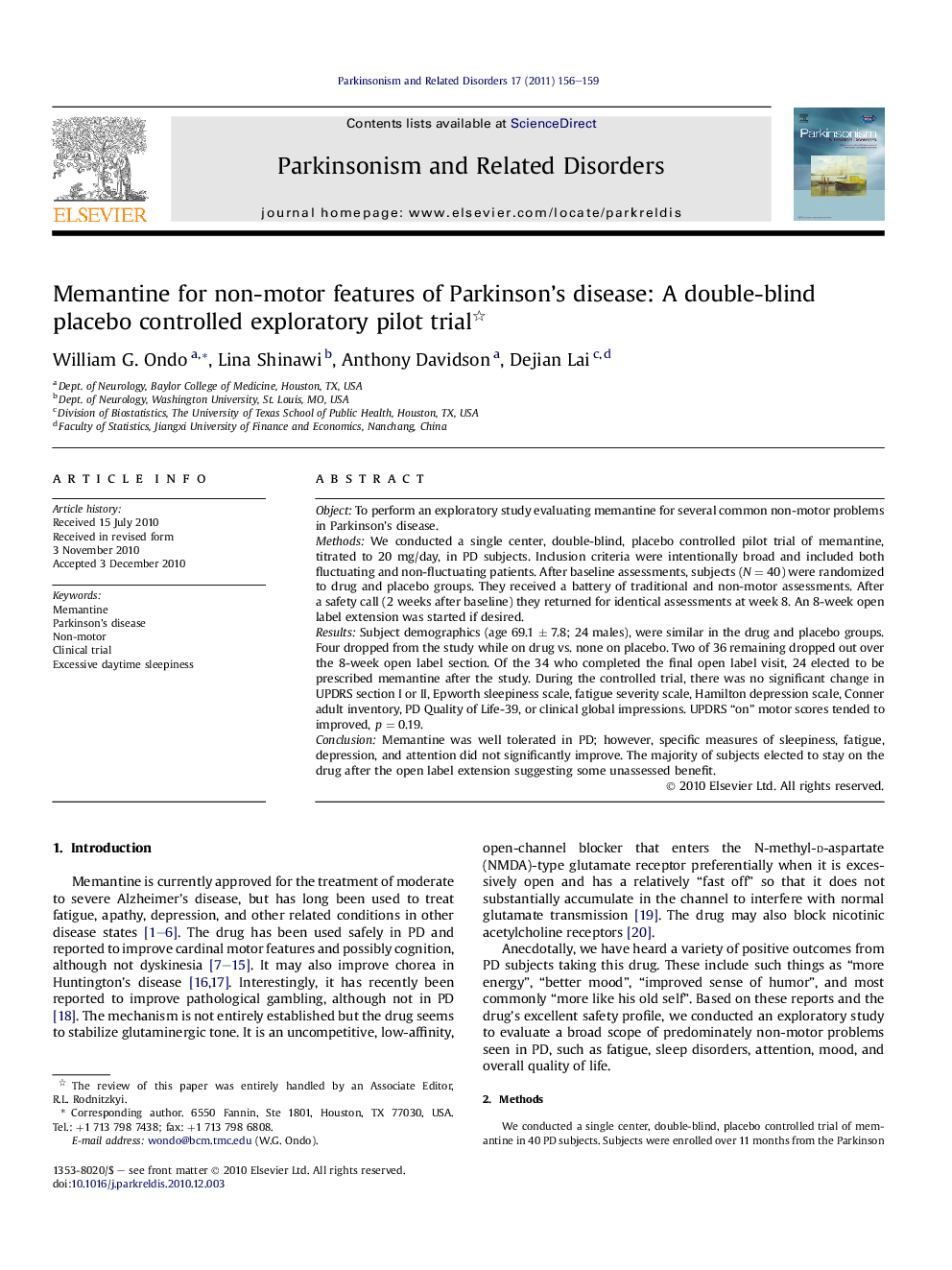| Article ID | Journal | Published Year | Pages | File Type |
|---|---|---|---|---|
| 1921005 | Parkinsonism & Related Disorders | 2011 | 4 Pages |
ObjectTo perform an exploratory study evaluating memantine for several common non-motor problems in Parkinson’s disease.MethodsWe conducted a single center, double-blind, placebo controlled pilot trial of memantine, titrated to 20 mg/day, in PD subjects. Inclusion criteria were intentionally broad and included both fluctuating and non-fluctuating patients. After baseline assessments, subjects (N = 40) were randomized to drug and placebo groups. They received a battery of traditional and non-motor assessments. After a safety call (2 weeks after baseline) they returned for identical assessments at week 8. An 8-week open label extension was started if desired.ResultsSubject demographics (age 69.1 ± 7.8; 24 males), were similar in the drug and placebo groups. Four dropped from the study while on drug vs. none on placebo. Two of 36 remaining dropped out over the 8-week open label section. Of the 34 who completed the final open label visit, 24 elected to be prescribed memantine after the study. During the controlled trial, there was no significant change in UPDRS section I or II, Epworth sleepiness scale, fatigue severity scale, Hamilton depression scale, Conner adult inventory, PD Quality of Life-39, or clinical global impressions. UPDRS “on” motor scores tended to improved, p = 0.19.ConclusionMemantine was well tolerated in PD; however, specific measures of sleepiness, fatigue, depression, and attention did not significantly improve. The majority of subjects elected to stay on the drug after the open label extension suggesting some unassessed benefit.
